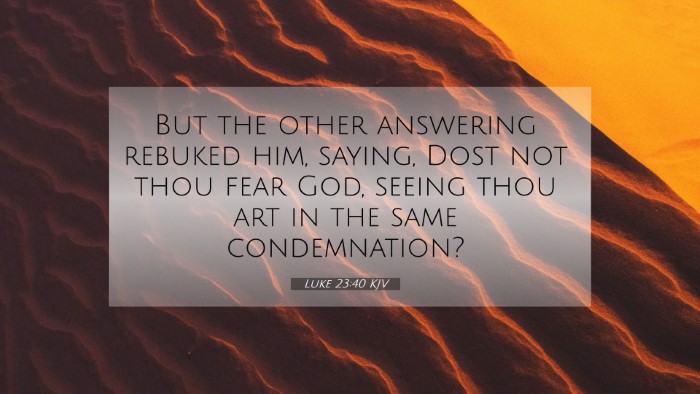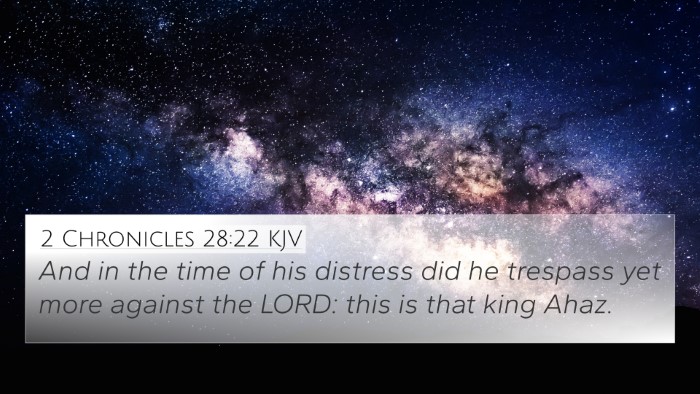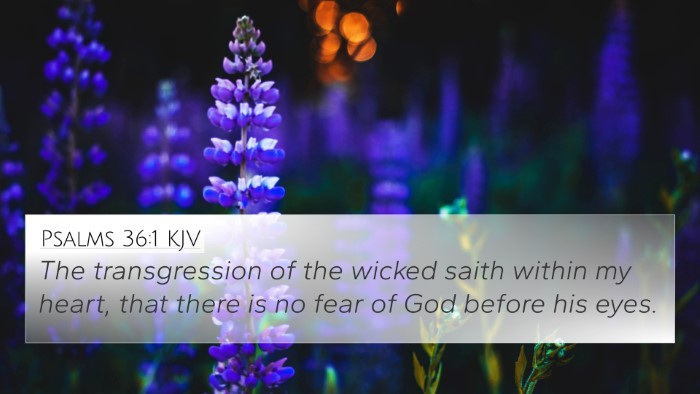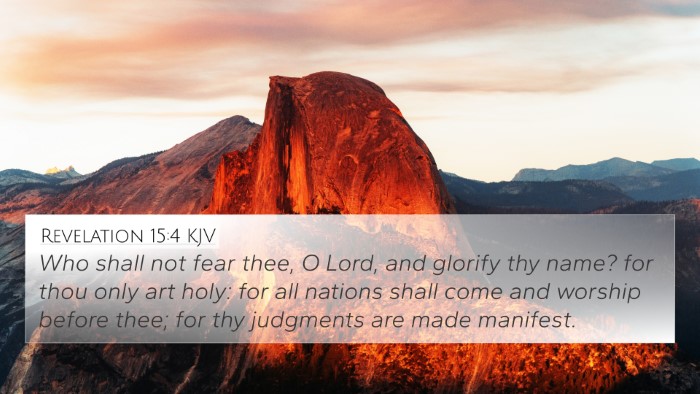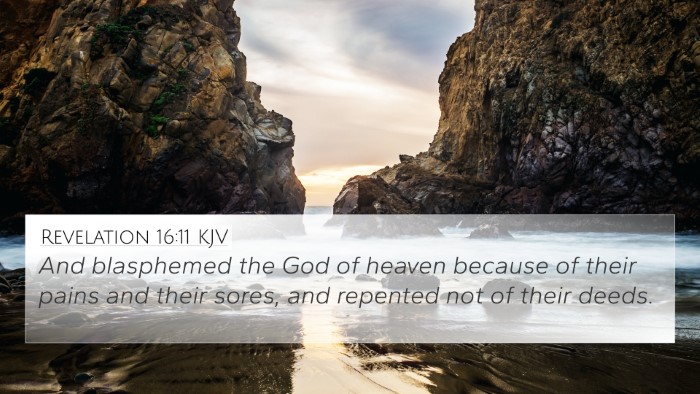Understanding Luke 23:40 - Biblical Insights
Luke 23:40 states: "But the other answering rebuked him, saying, Dost not thou fear God, seeing thou art in the same condemnation?" This verse occurs during the Crucifixion, where one of the criminals crucified alongside Jesus recognizes the gravity of their situation and speaks up against the other criminal's taunts.
Contextual Overview
This passage takes place in a crucial moment in the narrative of Jesus' passion. The setting of the scene involves Jesus being crucified between two convicted criminals. The reactions of these men provide profound insights into the broader themes of sin, repentance, and redemption.
Thematic Analysis and Commentaries
-
Matthew Henry's Commentary:
Henry highlights the transition from mockery to recognition. He points out that one of the criminals transitions from scorn to a fearful acknowledgment of God’s judgment. This evokes themes of faith and repentance, as it contrasts with the other criminal's disdain.
-
Albert Barnes' Notes:
Barnes elaborates on the nature of rebuke as a moment of clarity for the penitent thief. He suggests that this thief, unlike the other, has an understanding of divine justice. This verse serves as an illustration of how in moments of desperation, an acknowledgment of God can lead to salvation.
-
Adam Clarke's Commentary:
Clarke examines the moral outrage of the criminal who rebukes the other, noting that it’s a compelling moment of righteousness amidst deep despair. He discusses the power of conscience and the complexity of moral decisions faced even in the direst circumstances.
Bible Cross-References
Several Bible verses relate closely to Luke 23:40, each offering layered meanings concerning repentance, conviction, and redemption:
- Matthew 27:44: Highlights the mocking nature of those around the crucifixion, detailing the scorn faced by Jesus.
- Mark 15:32: Discusses the criticism from those crucified with Him, reinforcing the dynamic of belief and disbelief.
- Lamentations 3:39: Raises questions about human suffering and divine justice, paralleling the criminal's awareness of their justice.
- Luke 23:39: This verse shows a continuation of the conversation between the two criminals, offering deeper context for the rebuke.
- John 3:18: Touches on the concept of condemnation, offering a greater theological backdrop to the fears expressed by one criminal.
- Romans 14:10: Highlights accountability before God, a cornerstone of the insight expressed in the criminal's words.
- James 2:19: Discusses the belief even the demons have in God’s existence, contrasting belief with trust and repentance.
Application of the Verse
Luke 23:40 serves as a poignant reminder that even in the most extreme situations, there is opportunity for repentance. The acknowledgment of one's sins can lead to redemption, regardless of past actions. This highlights the theme of grace that permeates the New Testament.
Conclusion
By examining this verse, we are invited to reflect on our own lives, urging us towards humility and recognition of God's righteous judgment. This verse encapsulates a pivotal transformation—the shift from mockery to acceptance and plea for mercy, offering a powerful narrative that resonates across scripture.
Further Study
For those interested in exploring more about thematic Bible verse connections and how to utilize Bible cross-reference systems effectively:
- Utilize a Bible concordance to look up terms central to understanding sin and redemption.
- Engage in cross-reference Bible studies to see how these themes develop across the Gospels.
- Consider comprehensive Bible cross-reference materials for deeper theological study.
- Examine the links between the Prophets and Apostolic teachings to draw parallels to Old Testament revelations.


